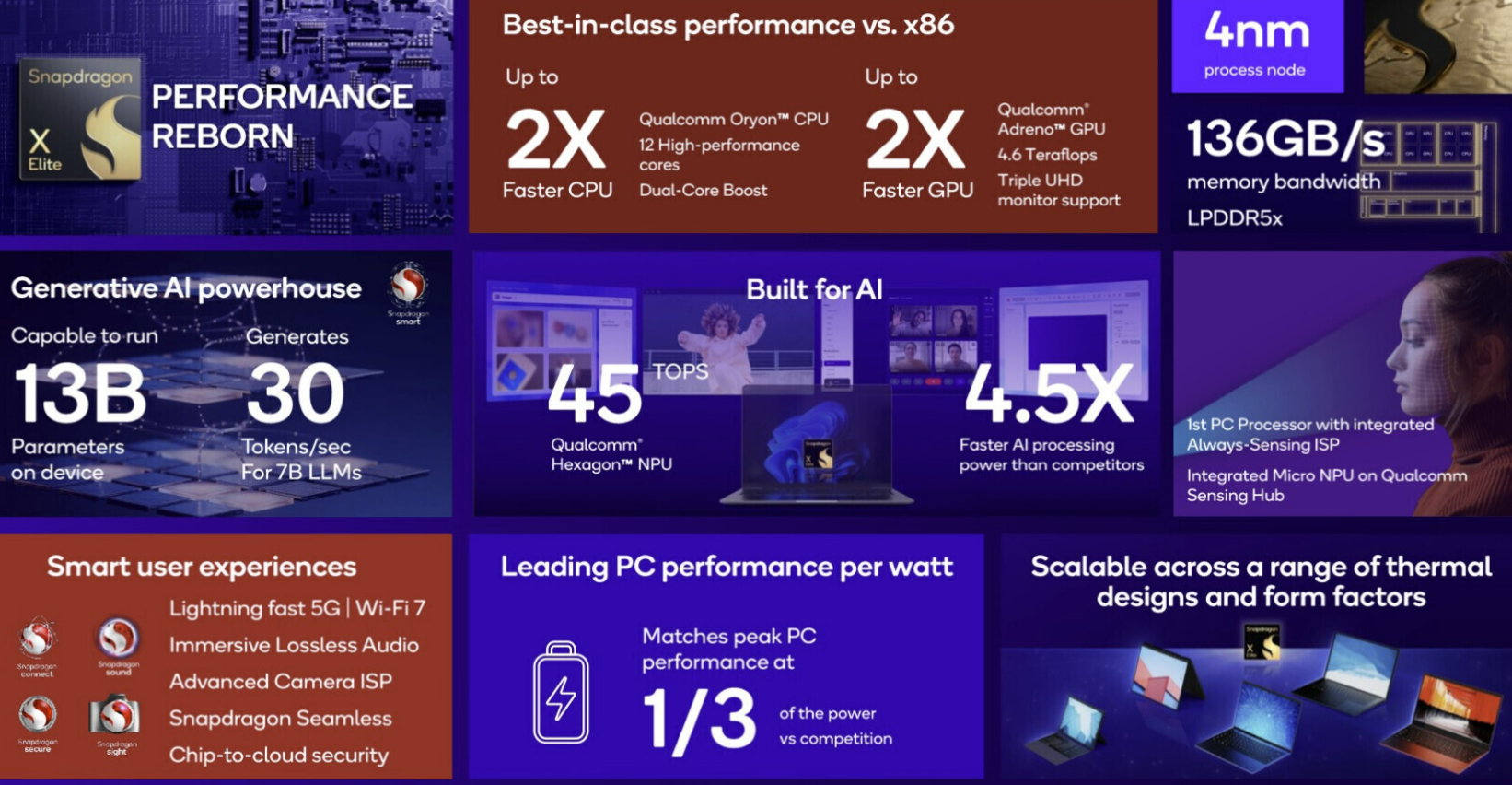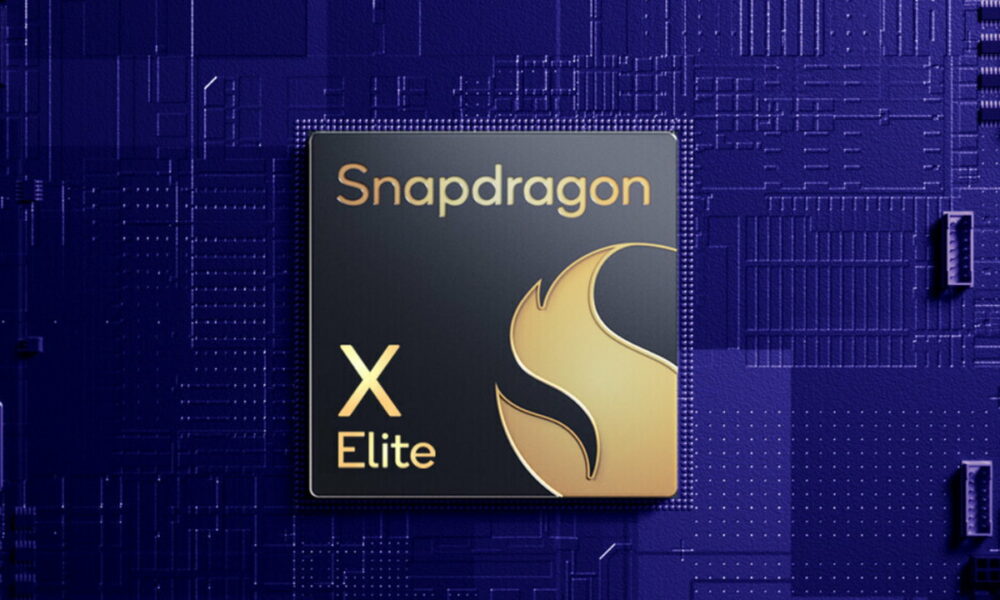Qualcomm Snapdragon
It’s no secret that Qualcomm’s new SoCs are a great bet in the industry against Apple’s successful transition to ARM. And also as an alternative to x86 from Intel and AMD. Microsoft is a natural ally of Qualcomm and will be responsible for the software section with Windows on ARM. And the big PC manufacturers (Lenovo, ASUS, HP, Acer…) are also behind it and are already testing this type of construction on their devices.
Qualcomm Snapdragon
Qualcomm unveiled the series last October, but didn’t give much concrete information other than that it will offer “Quantum Leap in Performance and Energy Efficiency”. A few months later, we learned that the high-end will be covered by the Snapdragon X Elite, but the variants that will be launched have not been revealed either. From the Baidu forums we now get a list that appears to be true, p eight different models divided into two series, Elite and Plus:
- Snapdragon X Elite X1E84100
- Snapdragon X Elite X1E80100
- Snapdragon X Elite X1E78100
- Snapdragon X Elite X1E76100
- Snapdragon X Plus X1P64100
- Snapdragon X Plus X1P62100
- Snapdragon X Plus X1P56100
- Snapdragon X Plus X1P40100
From what we know so far, we can say that they have developed completely from scratch and with our minds set on the PC. And not like previous designs that were derivatives of Qualcomm’s mobile phone chips. They will have a new architecture prepared by specialist Nuvia (a company acquired by Qualcomm) and will be manufactured in 4 nanometer processes at TSMC’s foundry.
They will include a GPU with cores ARM Oryon customized by Nuvia and integrated Adreno GPU with support for major graphics APIs, DirectX 12 and OpenGL (Vulkan). They will be able to work with up to 64 Gbytes of LPDDR5X RAM at a frequency of 8533 MHz, PCIe 4.0 SSDs for storage and connectivity updated to the latest Wi-Fi 7 and Bluetooth 5.3 standards. Qualcomm placed special emphasis on the capacity of the integrated Neural Processing Unit (NPU), which s 75 TOPs It would surpass Intel or AMD development.

In terms of overall performance, the X1E80100 s 12 cores in total (performance and efficiency) appeared last week in the Geekbench database installed on a Lenovo laptop. Its score didn’t impress anyone, but it was a sign of early engineering and no updated drivers.
We have to wait for the real results of the commercial versions. And as we said, let’s see if Microsoft can make a version of Windows for ARM on par with what it has for x86. And not only in performance, but also in application support and execution.














